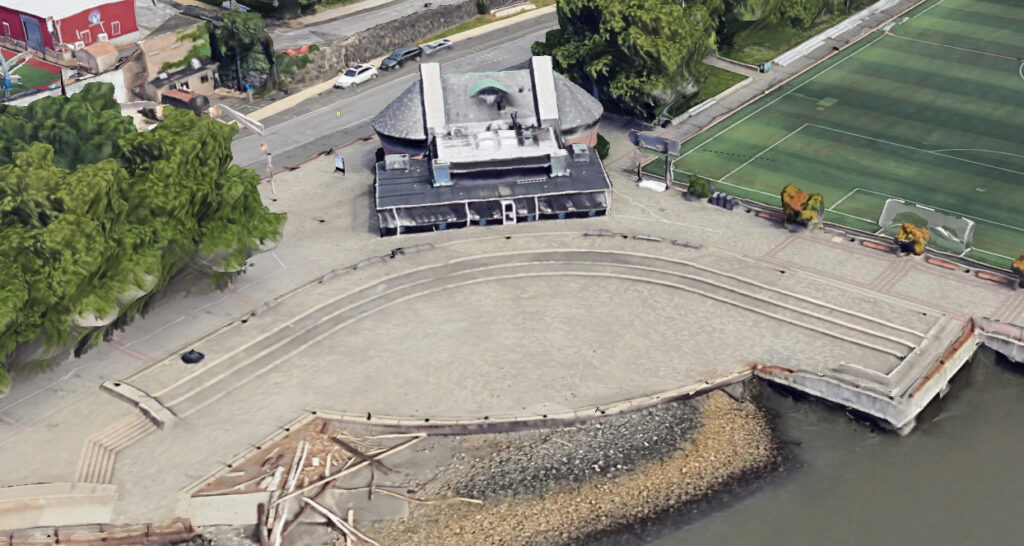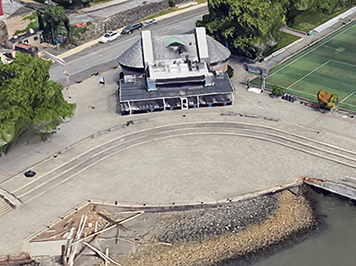Published in the Hudson County View September 3, 2024

Dear Editor,
In the 1980s, as maritime industries abandoned the Hudson River coastline, the State of New Jersey adopted Coastal Zone Management regulations that required a 30-foot public easement at the water’s edge — the Hudson River Waterfront Walkway — running 18 miles from the Bayonne Bridge up to the George Washington Bridge.
These regulations required developers to build their portion of this walkway as a condition of a NJDEP waterfront permit. The regulations specify that a 16-foot width of the easement be paved and accessible to the public for walking, running, sitting, etc.
Most of this state-mandated public walk has been built from Jersey City to Fort Lee. The first portion of the walkway in Hoboken was constructed in 1994 when the City built Sinatra Park on City-owned land with a grant from the NJDEP Green Acres program.
The park included the Sinatra Park Cafe which originally served as a concession for people using the park.
10 years ago, in violation of state Green Acres requirements, the City of Hoboken leased the cafe for use as a restaurant.
Subsequently, the lessee added an “improvement,” an enclosed patio to the front of the cafe building, blocking about ten feet of the required 16-foot paved portion of the walkway.
The Fund for a Better Waterfront has brought this infraction to the City’s attention as has the Hudson River Waterfront Conservancy.
Nevertheless, on Wednesday night, September 4, the City Council is scheduled to take a final vote on the new lease that perpetuates this walkway violation. [The Council postponed a vote on this agenda item at the Sept. 4 Council meeting.]
This bottleneck for the throngs of people traversing the walkway in Hoboken will remain if the council approves the lease ordinance.
The new lease will resolve the Green Acres issues. The cafe will revert to its original use serving as a concession for park users. Seating and tables will be accessible to the public.
But the city’s failure to comply with the state’s Coastal Zone Management regulations turns a blind eye to its legal obligations.
The solution is a simple one: remove the enclosed patio. This also greatly improves the appearance of the cafe, showing the structure, designed by local architect Dean Marchetto, as originally built.
Ron Hine
Fund for a Better Waterfront executive director
Related Links
The Sinatra Park Cafe: Diverting public space for an exclusive, private use
Proposals to monetize and privatize portions of Maritime Park run counter to the goal of a truly public waterfront
Can the City of Hoboken afford the $74.5 million price tag to build Maritime Park?
The urban design principles that make for successful waterfronts
The Hudson River waterfront and the planning process: public or private?
Plan for the Hoboken Waterfront
Public vs. Private


